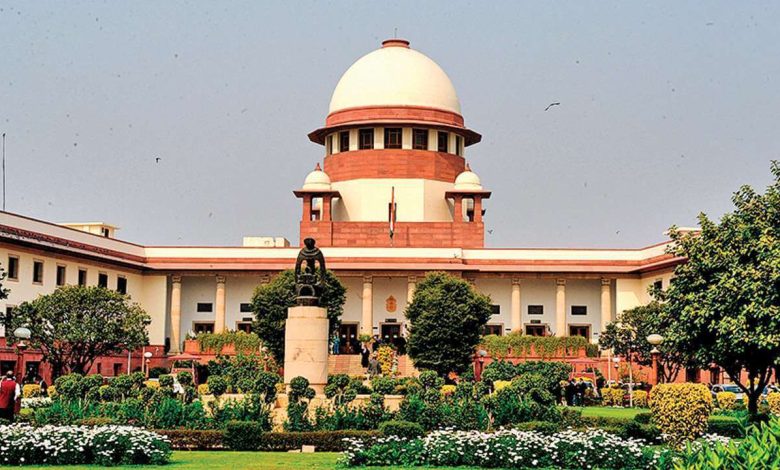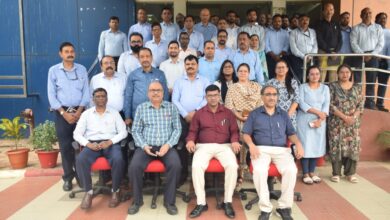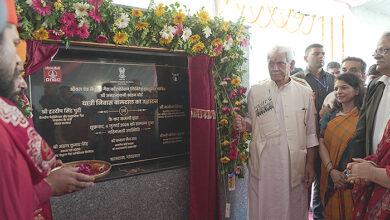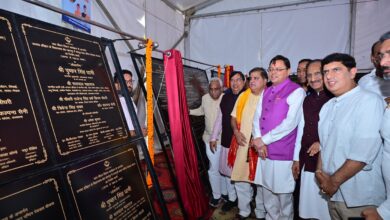Despite Observations And Judgments Of Various Courts, Government Is Embroiled In Frivolous Litigations : C. Srikumar, General Secretary, AIDEF
The Unions of Central Government Employees also repeatedly represented to the Government that multiplicity of litigations in service matters should be avoided, says the veteran trade union leader

OPINION PIECE
Recently the Delhi High Court has observed that there is an urgent need for a system that prevents un necessary and frivolous litigation concerning Government Departments or bodies which should focus on conducting Audit of decision making process to contest cases. The Court also added that such a mechanism must also focus of the principles of responsibility and accountability of erring Government departments and officials. The Supreme Court has also observed that 70 percent of Government litigation is frivolous and can be curtailed to lessen the Court’s workload, while rejecting a plea filed by the Union of India. The Government employees generally have a complaint that despite High Court and Supreme Court giving judgments in favor of the employees in various service matters, the Government instead of implementing the judgments to similarly placed employees implement the same only to the petitioners in the concerned case which force the other employees also to approach Court of law for getting justice. The Unions of Central Government Employees also repeatedly represents to the Government that multiplicity of litigations in service matters should be avoided.
C. Srikumar, a senior leader of Central Government Employees and also a member of the Standing Committee of National Council JCM which deals with the service matters of the Central Government Employees. The National Law Commission have also observed in the past that day by day cases in the various Courts are increasing where the Government of India is a party and it recommended that repeated filing of appeals in service matters should be dispensed with. The 5th Central Pay Commission also quoting various Supreme Court judgments have specifically recommended that in collective service matters whenever Supreme Court gives a judgment in favor of the employees then the Government should not force each and every employee to approach the Court of law for getting the same benefits. The AIDEF and the Staff side of the National Council JCM is repeatedly representing to the Government that this recommendation of the 5th CPC should be implemented. So far as the Defence Ministry is concerned when late Manohar Parikar was the Defence Minister we brought this to his notice and he constituted a high-level committee in the Ministry of Defence to find out ways and means for reducing litigation in service matters since in the Defence Ministry, thousands of court cases on service matters filed by the uniformed personnel and civilian employees were pending.
The High Level Committee studied the pending court cases and after interaction with the Federation has recommended that in service matters once the High Court gives a verdict in favor of the employees then the Government should not file appeal in the Supreme Court and that those judgments should be implemented for all similarly placed the employees. Late. Manohar Parikar, th then Defence Minister approved the recommendations but so far they has not been implemented.
One of the recent example is that multiple judgments given by The Central Administrative Tribunals, High Courts and Supreme Court that an employee retiring on the 30 th of June or 31st of December he should get his annual increment on the 1st of July / 1st of January on a notional basis for calculating his pension and terminal benefits. The Government as usual is implementing the benefit of judgment only to the petitioners who have approached the court of law.
Different Departments have also been advised by the DOP&T and Finance Ministry only to implement the judgment to the Petitioners and not to others. However, the CAG have issued an order for grant of notional increment to the employees of CAG retiring from service on 30th June and 31st December with a rider this benefit will be given only to those employees retiring after 11th April, 2023. Many retired and retiring employees are anxiously waiting for a general Government order in this regard since the Government has agreed in the meeting of the National Council (JCM) to implement the judgment of the Honorable Supreme Court.
Similarly, in the Defence Ministry multiple judgments for payment of Dress Allowance to the Industrial Employees have been delivered. Here, also the Government has implemented the benefit only to the petitioners. Recently, Kerala High Court has given a judgment that the 6 th CPC fitment benefit should be given in the Basic pay of Rs.6500 w.e.f. 01-01-2006 to those Central Government employees who were in the 5th CPC Pay Scales of 5000 – 8000 and 5500-9000 since both these pay scales were merged with 6500-10500. Instead of implementing this judgment, the Government has filed an appeal in the Supreme Court. The Supreme Court has asked for the financial implications if the judgment is implemented. Since the Government has not furnished the desired information the Supreme Court was forced to impose a fine of Rs.20000 on the Government for not furnishing the desired information. In another judgment, the Supreme Court has directed the Government to maintain parity in the pay scales of Assistant Category between subordinate offices and Central Secretariat. This Judgment also is not yet implemented. During the implementation of 6th Central Pay Commission a Basic Pay ceiling was imposed for payment of Night Duty Allowance which the Defence Civilian Employees fought up to Supreme Court and got it quashed. Ignoring this judgment again on 7th CPC the Government has once again imposed a Basic Pay ceiling limit which is arbitrary and illegal.
Under the JCM Scheme there is a provision for compulsory arbitration. In the National Council JCM and Departmental Council JCM Meetings, wherever the official side and the Staffside are not in a position to reach an agreement, such matters will be referred to a board of arbitration under the Chairmanship of a retired High Court Judge. The award of such board of arbitration is binding on both Government and the employees. However, the Government has been given powers to undo / modify the arbitration award through the Parliament. There are more than 20 arbitration awards which are pending for years together without taking any decision by the Government. The Staffside of the National Council JCM is relentlessly representing to the Government to implement all those arbitration awards given in favor of the employees.
The Government should be a model and good employer. To avoid industrial unrest and to resolve the issues and demands of the Central Government Employees the JCM scheme was setup by the Government during 1966. Even though the JCM scheme was little bit effective in the beginning years, at present the meetings of the JCM very rarely takes place. Employees are losing confidence in the JCM scheme which force them to approach Court of law for getting justice in their service disputes. Unfortunately even after getting the favorable judgment employees are forced to march upto the Supreme Court for getting justice. Government should avoid unwarranted litigations especially on service matters and should not encourage multiplicity of litigations. Once on service matters the law is established either by High Court or by Supreme Court the Government should immediately issue orders for implementation of those judgments in favor of the employees. Interestingly, if any Court judgment is
delivered against the employees the Government immediately extend the same to all the employees. This is a selective approach from the Government. Fighting court cases is an expensive matter now a days. Already the Central Government Employees are paying 10 percent of their wages for the no guarantee NPS and another 10 to 25 percent as income tax.
Over and above this spending for litigations demoralizes the employees which ultimately will have impact on efficiency and productivity. To avoid litigations on service matters the JCM scheme should be strengthened, regular meetings of the JCM should take place and in accordance with the scheme the official side should take efforts to take decisions in the meeting itself without prolonging the discussion for years together. Hope good wisdom will prevail in the minds of the decision makers sitting in South Block and North Block and take a constructive decision in this regard, concluded C. Srikumar.
Views expressed here are those of C. Srikumar, veteran trade union leader and General Secretary of AIDEF




